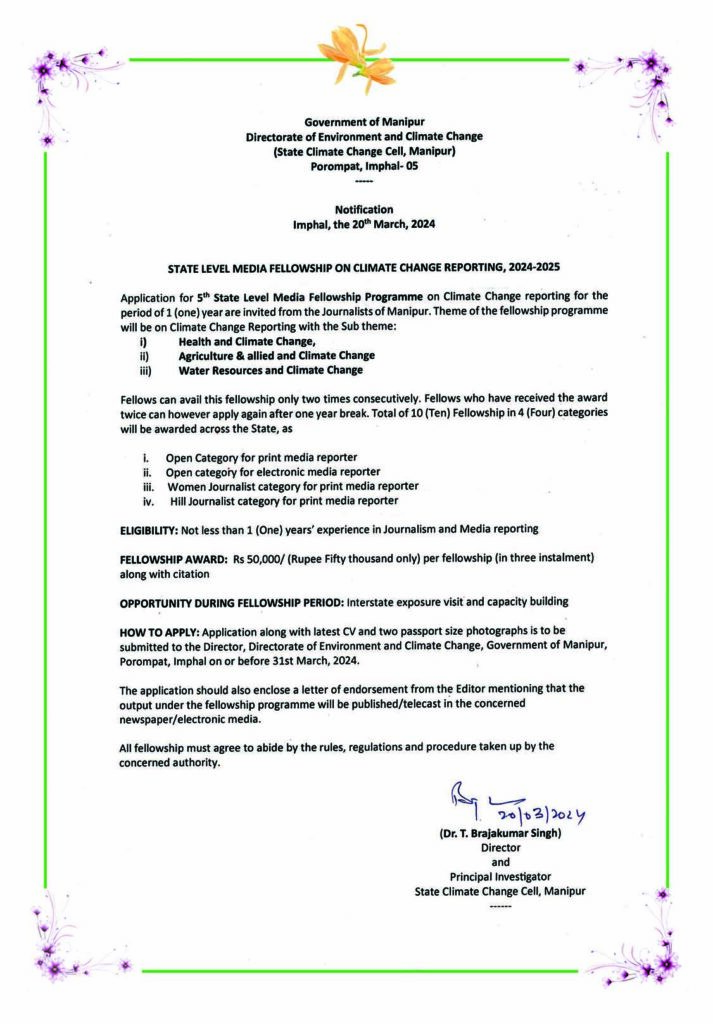The plan to establish the one and only prestigious National Sports University (NSU) in Manipur is befitting award for the people of the state to be recognized as “Sports Power House” of India. Once the NSU begins, the state will be in the international map for one more reason, i.e. a Sports centre in addition to two other reasons, i.e. officially recognized place for unique performing arts in the national and global map and unrecognized but widely covered stories of violent historical and ethnic Conflicts and the ‘insurgency’.
Sports lovers in the state still hunger to see the day when NSU is fully functional attracting international sports stars working with local talents to its full potentials benefitting through generations of the local people. But NSU has been in troubles in since day one of implementation, starting with site selection. The incumbent government then decided to acquire 500 acres of currently productive fertile paddy lands in Kakching-Thoubal district in the valley for their own local vested interests. It seems like NSU is already effectively playing with the territorial conflicts in the state which is not its official purpose and objective. The question that arises now is: “is the NSU conflict sensitive?”
Conflict is a powerful social phenomenon which can take the people who are directly or indirectly involved in it in three different directions, namely; (a) destructive and violent processes which may go on endlessly through generations or (b) constructive and creative processes which may also exploit the positive social energies to take people to newer heights of social and spiritual development or (c) a mixer of (a) and (b), hot and cold or never ending war and peace situations through generations. Since conflict is a natural social phenomenon it will continue to exist in the human society until human species get extinct. For practical reasons of making conflicts work destructively or constructively the decision makers have to develop an objective view on the nature of conflict and direct it to either destructive or constructive processes by involving the people, who have differences, through their plans and policies. If the decision makers are well-intended and good people they will ensure that any conflict between any two or more sections/groups of people are directed towards creative and constructive processes for sustainable development: security, peace and justice in the society
Based on the above understanding of conflicts, the sequence of events around establishment of NSU in Manipur attracts some key questions. Firstly, do the NSU planners and implementers at the national level, as well as every person directly or indirectly involved in this project, recognize the existing social, cultural, legal and political conflicts among the populations in the valley and between the valley and hill peoples within the official territorial space of the state? Secondly, if there is any recognition at any level, how well the project implementation processes, particularly starting with site selection, being handled by the incumbent governments and key stake-holding-civil society groups sensitive enough to the existing conflicts among various sections of society and communities whose interests in NSU are also at stake?
While the answer to these two questions is a clear ‘NO’ based on how events are unfolding and are being reported in the social and public media. The conflict situation apparently is deteriorating further, for a cultural /religious dimension has been added with the recent attack on one indigenous religious structure belonging one of the communities around the present site of NSU three days ago. It is time to halt, reflect and reverse the processes which is already taking people of the state in the destructive and violent path. Hasty and reactive actions will only invite more violence in the society and end up losing both the NSU and communal harmony among the people. It must also be noted that In any given conflict there is always a third party interested in perpetuating the conflicts to draw its own pounds of flesh or to fish in trouble waters to get demographic, geographic, economic and political advantage. Dangers of the current situation must be assessed fully, especially, among the indigenous people. Indigenous communities cannot afford/should not get into destructive/violent conflicts. They can only make peace and do justice among themselves for the future generation and do everything worthy of their cultures, identities and histories to prevent themselves from stepping into any violent conflict situations among themselves.

The writer is Visiting Faculty, NEISSR, Nagaland and Coordinator PINE (Manipur-Nagaland)








